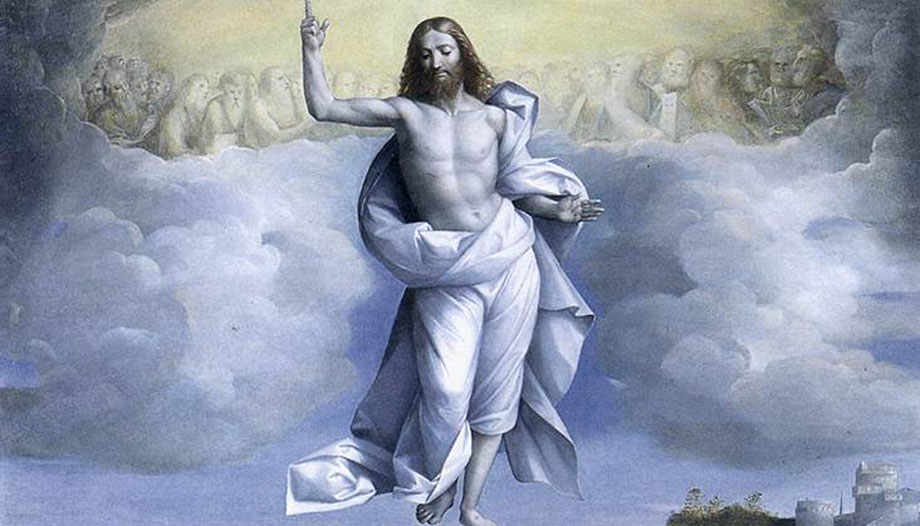With the Ascension, Luke concludes his Gospel, and with the same Mystery begins the book of Acts. Therefore, we can understand the Ascension as a new beginning, rather than a conclusion. We can also understand it as a new way of being with us, and not as a separation.
It is also the condition for the sending of that "to whom my Father has promised"of "strength from above". That is why the apostles have great joy, and not the sadness that would be so understandable in the face of the separation of a loved one, and even more so if it is the Son of God, who has changed their lives and the history of the world.
At the end of the Gospel of Luke, Jesus refers to what "it is written": the books of the Old Testament that reveal the Father's eternal plan of salvation, in which the suffering and resurrection of Christ were always foreseen, and also the preaching of conversion and the forgiveness of sins to all peoples. This is the synthesis of the proclamation entrusted to the apostles as witnesses.
This is his task, which is also ours. Thus, the Ascension helps us to remember the kerygma, the essential proclamation of the early Church, which we must always give to the world: Christ was crucified and rose again, he invites us to conversion and to receive God's forgiveness as an overabundance of love.
For his farewell, Jesus "he led them to Bethany". Luke uses the verb that is used many times in the Bible of the LXX to say that God led his people out of the land of Egypt, and in the Gospel of John it is used for the good shepherd who leads his sheep: Jesus leads his apostles as a good shepherd to Bethany, the quiet place of their rest. And then he raises his hands. Those same hands that forty days earlier he had shown them in the Upper Room: "Look at my hands and my feet!". Now they also look at them and see the imperishable traces of his passion, and with those hands he blesses them.
At the end of his days on earth, Jesus makes no recommendations, reproaches, lamentations, judgments or condemnations. On the contrary, he blesses his own and all those who are to come, the whole Church of all times, all creation.
Let us think of Jesus' blessing when we receive it in the liturgy or on great feasts: it is always that blessing, which is repeated.
A divine benevolence, a force that descends from on high, that produces a life stronger than death, than sin, than every frailty and every wickedness of men. It gives a peace that is stronger than any war.
The two men in white robes shake the men of Galilee who were looking at the sky and tell them that Jesus will return. "likewise"Therefore, he will come back blessing.
The homily on the readings of the Ascension of the Lord
The priest Luis Herrera Campo offers its nanomiliaa small one-minute reflection for these readings.












